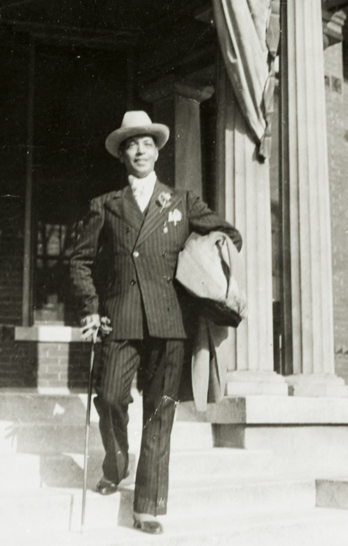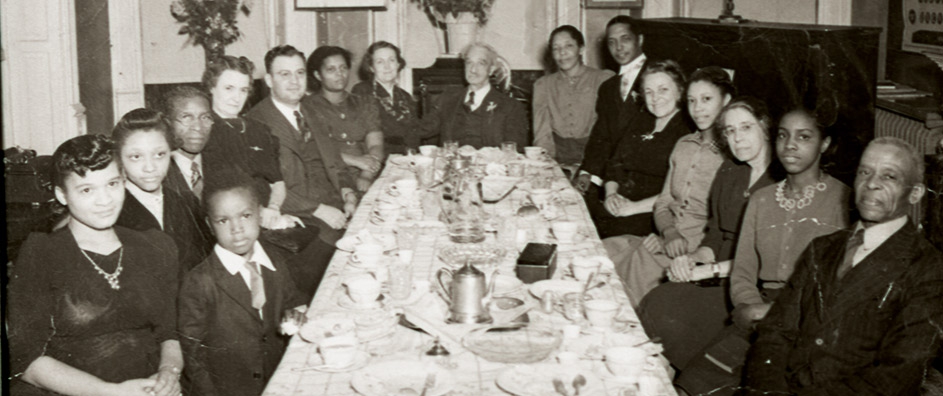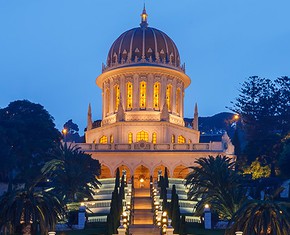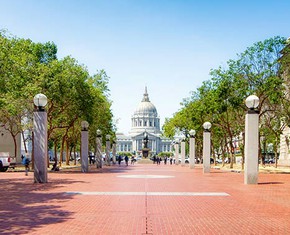The views expressed in our content reflect individual perspectives and do not represent the authoritative views of the Baha'i Faith.
To discriminate against any race, on the ground of its being socially backward, politically immature, and numerically in a minority, is a flagrant violation of the spirit that animates the Faith of Baha’u’llah. The consciousness of any division or cleavage in its ranks is alien to its very purpose, principles, and ideals. Once its members have fully recognized the claim of its Author, and, by identifying themselves with its Administrative Order, accepted unreservedly the principles and laws embodied in its teachings, every differentiation of class, creed, or color must automatically be obliterated, and never be allowed, under any pretext, and however great the pressure of events or of public opinion, to reassert itself. If any discrimination is at all to be tolerated, it should be a discrimination not against, but rather in favor of the minority, be it racial or otherwise. Unlike the nations and peoples of the earth, be they of the East or of the West, democratic or authoritarian, communist or capitalist, whether belonging to the Old World or the New, who either ignore, trample upon, or extirpate, the racial, religious, or political minorities within the sphere of their jurisdiction, every organized community enlisted under the banner of Bahá’u’lláh should feel it to be its first and inescapable obligation to nurture, encourage, and safeguard every minority belonging to any faith, race, class, or nation within it. – Shoghi Effendi, from a letter written to the American Baha’i community, December 25, 1938, in Advent of Divine Justice, p. 35.
In the previous essay in this series, we learned about Doris McKay’s efforts to persuade Memphis’ White Baha’is to integrate with the Black Baha’is. At first, they acceded. Shortly after, however, assent gave way to dissent, as three White Baha’is refused to go along with the integration idea.

Professor Henderson (Courtesy of the National Baha’i Archives, United States)
Space constraints won’t accommodate all the details here. But suffice it to say that the attitudes of the old South reasserted themselves and held sway, as doubt troubled the otherwise devout.
Meanwhile, some 10 days later, Doris McKay’s efforts among the Black Baha’is in Memphis met with success. For several weeks, she had been teaching a “Baha’i Qualifications” class, in which a small group of two students and one faculty member of the Henderson Business College joined in studying a foundational Baha’i document known as The Will And Testament of Abdu’l-Baha. At that time, a good understanding of this historic and foundational Baha’i scripture was required for full enrollment into the Baha’i community. Here is Doris McKay’s diary entry from March 12th, 1941:
Yesterday, I was reading Abdu’l-Baha’s Will [& Testament] with two of my Colored students and I came to this:
Should other peoples and nations be unfaithful to you show your fidelity unto them, should they be unjust toward you show justice towards them, should they keep aloof from you attract them to yourselves, should they show their enmity be friendly towards them, should they poison your lives, sweeten their souls, should they inflict a wound upon you, be a salve to their sores. Such are the attributes of the sincere! Such are the attributes of the truthful. – Abdu’l-Baha, The Will And Testament of Abdu’l-Baha, p. 14.
I saw something in their faces and my eyes filled with tears.
I said, “Girls, these things have already happened to you because of racial prejudice, isn’t that so?” And they said, “Yes.”
We had a deep talk and they told me they were ready to accept the Baha’i consciousness and to live by that rule. It was beautiful, that talk. None of us will ever forget it. – Doris McKay, with Paul Vreeland, Fires in Many Hearts, p. 304.
The next day, Doris decided to give integration another try. She met with Professor Henderson:
When I arose to leave, I asked him, “Professor Henderson, may we bring our Feast to you at six o’clock a week from today [Thursday, March 20th]? He agreed. Corella Grey, one of the teachers at the [Henderson] Business College and one of my students [Irene Gleadon or Ruby Jenkins] signed her enrollment card [in the Baha’i community] that day. – Ibid., p. 306.
Having made this arrangement, McKay followed up by announcing the forthcoming interracial Feast scheduled for March 20, 1921:
The announcement was given. The Feast of Naw Ruz [the Baha’i New Year] for the Memphis Baha’is of both races would be held at Professor Henderson’s Business College. – Ibid., p. 306.
That long-awaited (and long-overdue) day finally came. As Doris McKay recalls:
On the day of the Feast, I called the White members and reminded them of the exact hour. The girls from the Business College and I planned the details and went out and bought refreshments to be delivered to the school. Dr. and Mrs. Watkins came to help us set up the tables and to prepare sandwiches and a fruit salad. Alvin Blum came back from a long trip. Clara and Johanna came. Surprise of surprises, Grace Bogan came. Counting Howard and myself, there were twelve confirmed adult Baha’is and two youth members. Howard said a prayer and the silence persisted as we “broke bread” together. After the feasting, the reading of messages from absent friends, the taking of a group photograph, reading from the sacred Writings and music, members of the Baha’i Community and future assembly of Memphis elected temporary officers. – Ibid., pp. 306–307.
That historic photograph remains to this very day, memorializing that historic event. Although small-scale, this meeting proved pivotal, representing a turning point in the history and future of the Memphis Baha’i community. The Nashville Baha’i community also held an interracial Feast that same night as well.
Doris McKay concludes her narrative of this groundbreaking episode:
My job was over. The amalgamation of White and Black groups had happened and we discovered that we were not oil and water. We had mixed and were all enriched by that event. The evening was not exuberant, but the flow of the spirit was authentic and many of us were quiet in the significance of our act. After all, this was history. – Ibid., p. 308.
In April, 1941, George W. Henderson was elected as a member of the first Spiritual Assembly of the Baha’is of Memphis, now a fully integrated community, thanks to the interracial efforts of Professor Henderson and Doris McKay.
Professor Henderson died on December 24, 1944, a highly-respected public citizen, and a stalwart Baha’i for 29 years.
It is time to sing the praises of this relatively unsung social hero.
















Comments
Sign in or create an account
Continue with Googleor